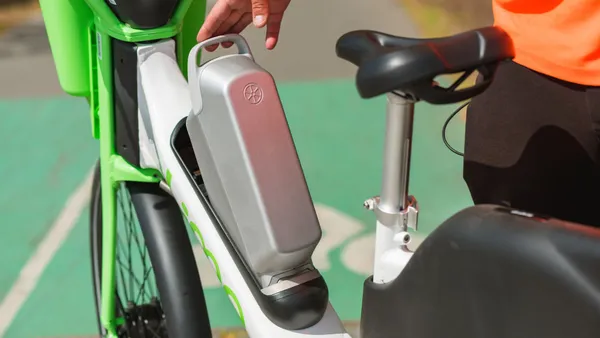Dive Brief:
- The City Council of Bisbee, AZ, voted to draft a new version of its bag ban ordinance this week that makes it a voluntary, rather than compulsory, measure for retailers, as reported in AZ Central. The local ordinance prohibited retailers from using plastic bags and implemented a five-cent fee on paper bags.
- Arizona Attorney General Mark Brnovich's office released a report in late October that said Bisbee's bag ban, enacted in 2012, violated a 2016 preemption law barring local governments from banning plastic bags. This came after State Sen. Warren Petersen filed a complaint with Brnovich's office — Arizona state law allows legislators to submit requests for investigation.
- That same state law allows Arizona to withhold tax revenue from cities that have ordinances in conflict with state law. Bisbee could lose nearly $2 million, nearly a quarter of its annual budget, if it does not change the ordinance by late November. According to Bisbee's mayor, the council will vote on the new bill Nov. 7.
Dive Insight:
Arizona's law that allows for tax revenue to be cut off from cities was seen by some, at the time, as the escalation of a longstanding conflict between the state's conservative streak and liberal city-level politics. Previous focuses of that conflict have been local gun control laws or paid sick leave. The bag ban in Bisbee, however, appears to be the first packaging-related instance.
Echoing the long-running debate, state lawmakers who supported Arizona's preemption policy said banning plastic bags could hurt small businesses in the forms of costly regulation and inconsistent, confusing local laws. Preemption has become a popular talking point for some policymakers who say they are looking to protect local jobs and manufacturing. Pennsylvania lawmakers attempted to move preemption into state law, but were blocked by the governor. Nearly 10 other state legislatures have passed their own preemption laws.
It seems that the discussion — and drama — surrounding bag bans and bag fees is not going away any time soon. Aside from California, no other state has successfully enacted bans or fees yet. It has become more common to see local action on the issue in hopes of reaching a critical mass statewide. With the exception of San Francisco, which recently started accepting bags in its curbside recycling program, most cities are looking for ways to keep the material out of their MRFs or local waterways.













